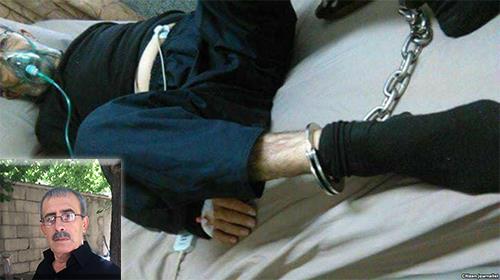Iran: Countering the sanctions through negotiations or out of peoples’ pockets?
Iranian regime officials are concerned over how to compensate for the lack of foreign currency.
While international sanctions against the regime ruling Iran increase and every venue for exporting oil comes to a close, the ruling theocracy in Iran is going into a panic mode.
Petrodollars, in addition to covering Iran’s hegemonistic ambitions and its export of fundamentalism throughout the Middle East, also provided for part of the government’s budget. Now that the U.S.’ zero-export-policy is firmly implemented, Iranian regime officials are concerned over how to compensate for the lack of foreign currency. This prevailing issue looms large over the already hot internal debates between Iran’s opposing factions inside the ruling elite weighing the right approach towards the international community.
In response to the new no-waiver policy for Iran’s oil exports, the mullahs’ Supreme Leader Ali Khamenei and President Hassan Rouhani claim Iran will sell as much oil as it wants. However, they fail to explain how the country intends to cover the lost foreign currency due to sanctions.
All the while, different voices can be heard from inside the regime apparatus.
Seyed Hossein Mousavian, a former senior Iranian diplomat says the “crises riddled U.S.-Iran relations will depreciate over time.”
“Adding the Islamic Revolutionary Guards Corps (IRGC) to the Foreign Terrorist Organization (FTO) list shows the increasing seriousness of the U.S. government’s animosity vis-à-vis the Islamic Republic of Iran. This is a provoking approach that without a doubt U.S. president Donald Trump will continue over the next two years,” he said.
“Based on such an approach, Iran’s vital national interests require the officials responsible for the country’s national interests to have a thorough understanding of the coming situation and making the right decisions on time,” Mousavi emphasized.
He then asked Iranian officials not to wait for the next U.S. presidential elections and a change in the U.S. administration.
“Firstly, Trump’s approval rating has risen and there are no guarantees that Democrats will win the elections. Secondly, the destruction in the first two years and until the end of Trump’s first term will be so severe there will be no escape for the next elected [president],” Mousavi warned.
Iranian Foreign Minister Mohammad Javad Zarif’s recent visit to the U.S. and his interview with Fox News seems to be a prime example of how at least parts of the ruling elite in Tehran are heeding to this advice.
In an interview, aired by Fox News on Sunday, Zarif attempted to drive a wedge between Trump and senior members of the U.S. administration that he sees hawkish on Iran.
The so-called "B team," as put by Zarif, is trying to push U.S. President Donald Trump "into a confrontation he doesn't want."
Ahmad Zeidabadi, a political analyst close to Rouhani’s so-called moderate camp, warns about the internal political division around the current situation. “In order for a consensus over not negotiating [with the U.S.] to succeed, even if it is a right decision, it needs a consensus to handle the situation inside the country, which there is no prospect for.”
He then implicitly supports negotiating. “If the officials want to take up the initiative in the face of increasing foreign pressure, they shouldn’t be afraid of new decisions.”
The Jomhouri Eslami newspaper, close to Rouhani’s faction, writes there can be devastating consequences for the Iranian economy considering the decrease in oil exports. In response, the newspaper suggests three solutions that pay the price out of peoples’ pockets without exception.
“There are at least three sources that could potentially cover the lack of income due to decreasing oil exports:
- Reforms in how public subsidies are paid,
- Expanding the taxes umbrella,
- Removing state-set prices for some products, such as petrochemicals and stopping to distribute currency at state prices.
Considering that the ruling theocracy in Iran controls and owns more than 50 percent of the economy, such rapid privatization measures will lead to widespread misery and deprivation among the population.
On the other hand, the Ebtekar daily, also close to Rouhani’s faction, warns about covering the oil deficit out of the peoples’ pockets.
“Targeting the people solely to cover the damages inflicted by sanctions… can create a new crisis in the societal, economic, and political fabric of the country,” the piece reads in part.
Without specifically mentioning the IRGC or economic institutions belonging to Khamenei, the newspaper then writes: “To fundamentally change the country’s economy, you can not only count on the people. Decision-making institutions must have the utmost resolve to welcomes changes from within. This needs a powerful and multidimensional mechanism for leaving some interests that haven’t been challenged until this very day.”




Comments
Post a Comment